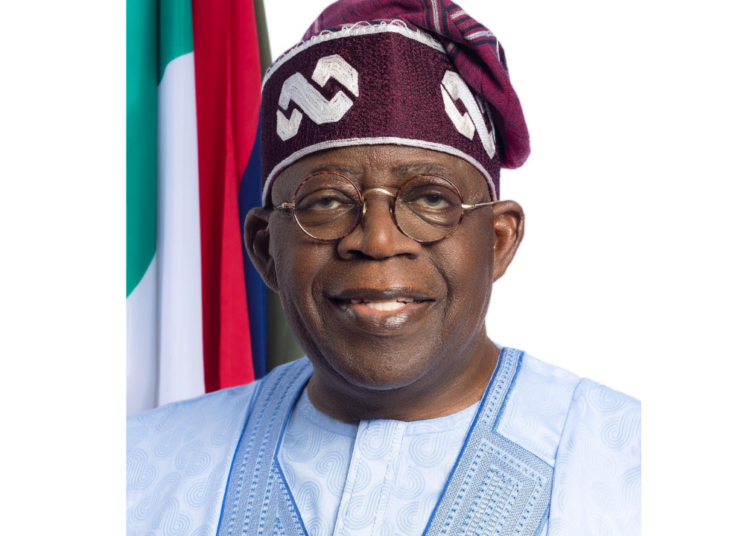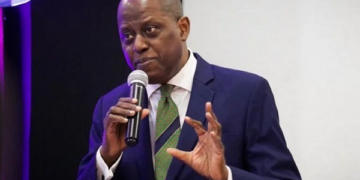Nigeria’s poverty rate had escalated over the years, ranking third in the world in 2014, first in 2018, and further sliding to 133 million citizens living in multi-dimensional poverty in 2022, according to the National Bureau of Statistics. Sadly, the removal of fuel subsidy by the President Bola Ahmed Tinubu-led administration has further slip more citizens into poverty leading to significant hardships for Nigerians, impacting their daily lives and livelihoods.
Nigerians, however, are demanding greater accountability from the government and relevant authorities to ensure transparency in decision-making and resource allocation. They also seek a fair distribution of a living wage is advocated instead of the current N30,000 minimum wage, which has left many struggling to meet basic needs.
Due to financial constraints caused by poor pay, many individuals have been left with no choice but to park their cars as they navigate economic challenges. Workers in small and micro-sized enterprises have been forced to resign from their jobs due to inadequate pay, highlighting the need for improved working conditions.
Nigerians also noted that while refinery refurbishing is essential, it should not come at the expense of providing palliatives, as they help cushion the impact of subsidy removal.
Drawing attention to past incidents during the Covid-19 period, citizens stressed the importance of proper accountability to ensure effective distribution and underscored the significance of prioritising palliatives to support citizens during economic challenges, while ensuring accountability in their distribution.
Expressing her perspective on the order of priorities between palliatives and the refurbishing of the refinery, the convener of Food Basket Nigeria, Dr. Funmi Akinyele, has called for improved accountability in palliative measures.
In response to the President’s recent announcement of palliative measures and the need for the country’s refinery, Akinyele emphasised the immediate importance of updating and unbundling the social register.
She stressed the significance of capturing poor and vulnerable citizens to ensure cash transfers as part of palliatives, nothing that these measures are crucial to cushion the impact of the federal government’s removal of subsidy on Premium Motor Spirit.
Dr. Akinyele compared the situation to rescuing people from a burning building before tackling the fire. She highlighted the urgent need to address the suffering caused by the fuel subsidy removal.
Once immediate relief is provided, she advocated for a more long-term solution that includes looking into refinery development and exploring gas options.
When questioned about accountability in the distribution of palliatives, Dr. Akinyele emphasised its significance, stating that the primary goal is to ensure that those who genuinely need assistance receive it.
She expressed concern about the historical issues in Nigeria where such initiatives do not always reach the intended beneficiaries.
Akinyele stressed the shared responsibility of the government, civil society organisations, and citizens in holding the government accountable.
“Transparency and accountability are essential for ensuring the desired impact and relieving the suffering of those in need,” she said.
Corroborating Akinyele’s call, the executive director of the Centre for Transparency Advocacy, Faith Nwadishi, in her opinion, said palliatives should take precedence as people need immediate support to sustain their lives.
According to Nwadishi, while the refurbishing of the refinery is essential, it should not be pursued at the expense of providing palliatives to the citizens. She emphasised the importance of addressing the impact of subsidy removal while simultaneously working on refinery repairs.
“Implementing palliatives in an accountable manner would help cushion the effects of subsidy removal on the citizens’ well-being, ensuring they can cope with the current challenges,” she said.
Nwadishi also stressed the unbundle the national social register and updating it.
need for accountability in the distribution of palliatives. Drawing attention to past incidents during the Covid-19 period when essential supplies were kept in warehouses instead of reaching those in need, she stated that proper accountability is crucial.
“Involving citizens in the distribution process can help ensure that the palliatives reach the intended recipients and are utilized effectively,” she said.
As an advocate for transparency and accountability, Faith Nwadishi’s highlighted the significance of prioritising immediate support for citizens through palliatives, while also stressing the need for proper accountability in their distribution to avoid any mismanagement or repeat of past incidents.
On his part, a social analyst, Mr. James Uneze, called on the federal government to introduce a comprehensive social protection programme to aid the poor and vulnerable and alleviate poverty.
He said the federal government should draw inspiration from the success stories of China and India, he said the two countries have significantly reduced poverty through robust social protection policies.
Seeking accountability, he expressed concerns about the government’s initiatives to mitigate the harsh economic and social impacts of the subsidy removal policy on citizens.
James stressed the need to update and transparently share information from the nation’s social register to ensure the proper distribution of funds to the masses
For an encompassing approach, he also called for strategic communication of the implementation stages of the social protection policy, considering the endemic corruption and lack of trust in the government.
To address poverty, he recommended increasing access to basic education and primary healthcare for poor Nigerians. He also stressed the necessity to reevaluate the national minimum wage of N30,000, as it was deemed unsustainable in the current economic conditions.
He lamented the increase in prices of goods and services and its direct impact on the citizens’ daily struggles and called for an immediate process to increase the minimum wage at all levels, including the private sector.
On her part, the executive director of Equity Advocates, Dr. Ene Ede, stressed the need to prioritise local energy solutions for Nigeria’s development.
Speaking about President Bola Ahmed Tinubu’s speech on palliatives and the refurbishing of refineries, Dr. Ede highlighted the importance of considering immediate and long-term solutions.
Dr. Ede pointed out that while the refurbishment of refineries is crucial, Nigeria should also explore alternative ways of generating energy. She stressed the significance of tapping into local talents and innovations that can address the nation’s energy needs. One such example she mentioned was the use of waste to produce fuel for various applications.
She advocated for greater utilisation of solar energy, particularly in regions like the Federal Capital Territory (FCT), where the sun’s intensity could be harnessed effectively.
She encouraged the adoption of locally produced and fuel-efficient vehicles, and patronising local companies like Innoson vehicles, as an alternative to imported ones, thereby supporting local industries and reducing dependency on foreign companies.
She also highlighted the importance of combating corruption, saying it hampers progress and exacerbates the energy and economic challenges faced by the country.
She urged a collective effort to focus on local content and ingenuity, which can provide sustainable solutions to Nigeria’s energy needs without overcomplicating the matter.
We’ve got the edge. Get real-time reports, breaking scoops, and exclusive angles delivered straight to your phone. Don’t settle for stale news. Join LEADERSHIP NEWS on WhatsApp for 24/7 updates →
Join Our WhatsApp Channel










